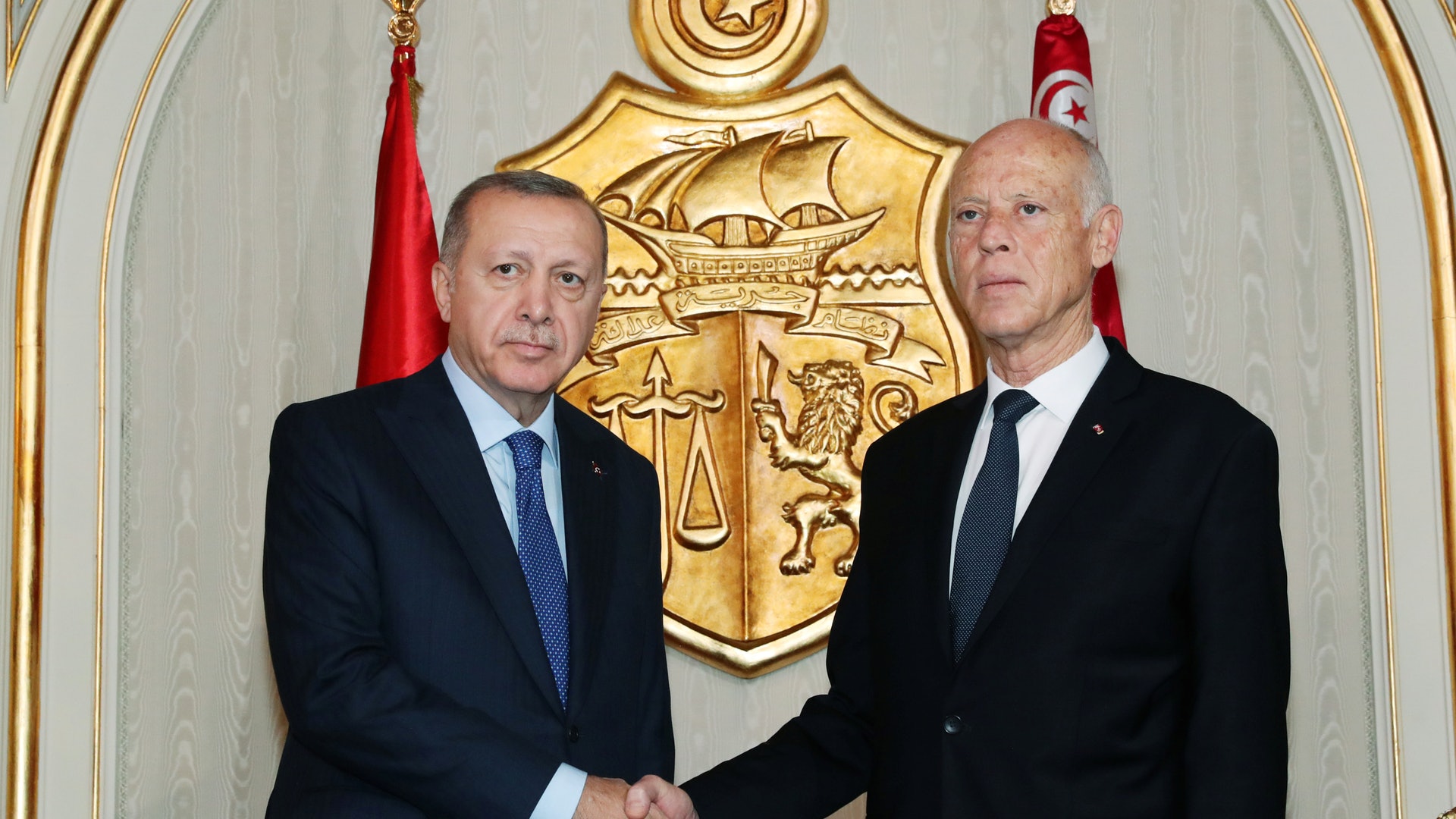Turkish President Tayyip Erdogan made a surprise visit to Tunisia on December 25 to meet with President Kais Saied of the country to discuss the possibility of a ceasefire in the Libyan civil war and return to political dialogue.
Erdogan emphasized that the warring parties in Libya must ceasefire as soon as possible to reach an agreement, and said that the negative development of the situation in Libya will affect neighboring countries, and Tunisia will bear the brunt. Said said that the agreement between Turkey and the Libyan government does not affect Tunisia, describing the issue between the country and Libya.
About a week before the visit, Turkey reached a maritime and military agreement with the Libyan Government of National Accord. According to the content of the relevant agreement, Turkey will be allowed to send military experts and armed forces to the country, and also allow Turkey to enter the disputed Eastern Mediterranean economic waters. Erdogan reiterated that if the Tripoli government invites, Turkey will evaluate sending troops to Libya. However, the United Nations has imposed an arms embargo on Libya.
The National Reconciliation Government currently controls Tripoli and parts of the western part of the capital. Although it is supported by the United Nations, Italy, and Qatar, it is weak; as for the House of Representatives in eastern Libya, the military strongman Haftar Supported by the Libyan National Army (LNA) of Khalifa Hifter, it is supported by Arab countries such as France, Russia, Jordan and the UAE.
Turkey agreement affects the interests of many countries in the region
The Haftar party has condemned Turkey for signing an agreement with the Tripoli government, while Greece and Cyprus, which have traditionally been at odds with Turkey, and Egypt and Israel, which have significant energy investments in Libya, also criticized the agreement as a violation of international law and non-binding. Analysis believes that Turkey’s measures will affect the dispute over gas resources in the Eastern Mediterranean, disputes with the EU’s immigration policy, and NATO membership issues.
Since the fall of the Moammar Gadhafi regime in Libya in 2011, many regions in the country have fallen into anarchy, and are now confronted by the government of national unity and the National Congress.












